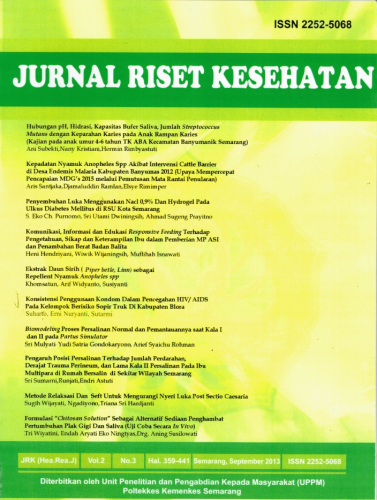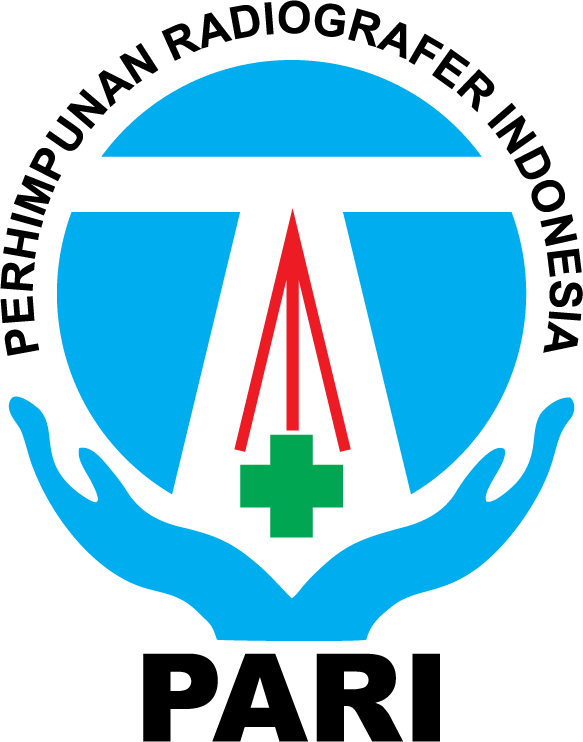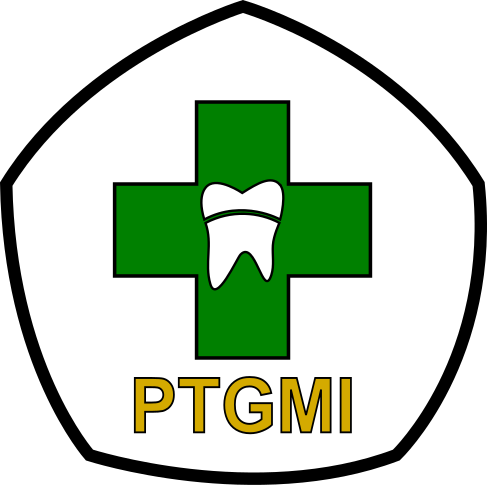FACTORS WATER CHARACTERISTIC AS PREDICTING DIARRHEA UNDER 5 YEARS
Abstract
Risk Factors diarrhea deaths associated to unsafe water and inadequate sanitation. Water supply is very important to decrease of diarrhea disease. Living around canal is a one of risk diarrhea incident. Improved water sanitation, water facilities, and hygiene water decrease of diarrhea disease. Study aims to know dominant factor related water sanitation which is more appropriate than diarrhea in volcano area disaster. Study design used cross sectional community-based survey. Population and sample size were required 1142 household. Data collected such as sufficient of water source, water colored, smelly water, taste water, water cooked, distance of absorption. Data were analyzed performed using SPSS. Data analysis performed a descriptive analysis, statistic test with chi square and logistic regression with confidence interval 95%. Study that sufficient of water 97.2%, no water colored 98.4%, no smelly water (95.3%), no taste water 95.4%, water cooked 98.2%, distance of absorption more than 11 meter 78%. Risk factor for diarrhea such as taste water OR = 7.3 (3.7-14.4), smelly water OR = 6.9 (3.5-13.6) and distance of absorption OR = 3.4 (2.0-5.7). Factor highest contribution for diarrhea is distance absorption (Exp β = 1.70 CI; 1.701-4.906). Distance absorption less than 11 meters is main factor contributing for diarrhea. Factor dominant contribution for diarrhea is distance of absorption less than 11 meter.
Keywords
Full Text:
PDFReferences
Aoyama, T., Fukumoto, A., Shigita, K., Asayama, N., Mukai, S., & Nagata, S. (2020). Bile pigment in small-bowel water content may reflect bowel habits : a retrospective analysis of a capsule endoscopy imaging series. 1–9.
Bhandari, P., Bak, J., Lee, K., Chon, Y., & Bhattachan, A. (2019). Assessment of Socio-Demographic Factors , Mother and Child Health Status , Water , Sanitation , and Hygienic Conditions Existing in a Hilly Rural Village of Nepal. 1–12.
Boloweti, D. B., Id, P. G., Deniel, C., Garnier, E., Mauny, F., Kasereka, C. M., … Id, G. B. (2020). Volcanic activity controls cholera outbreaks in the East African Rift. 1–20. https://doi.org/10.1371/journal.pntd.0008406
CDC. (2017). Global Burden of Disease Study 2017.
Chigor, V., Ibangha, I., Chigor, C., & Titilawo, Y. (2020). Heliyon Treated wastewater used in fresh produce irrigation in Nsukka , Southeast Nigeria is a reservoir of enterotoxigenic and multidrug-resistant Escherichia coli. Heliyon, 6(May 2019), e03780. https://doi.org/10.1016/j.heliyon.2020.e03780
Contreras, J. D., Trangucci, R., Felix-arellano, E. E., Rodríguez-dozal, S., Siebe, C., Riojas-rodríguez, H., … Eisenberg, J. N. S. (2020). Modeling Spatial Risk of Diarrheal Disease Associated with Household Proximity to Untreated Wastewater Used for Irrigation in the Mezquital Valley , Mexico. 128(July), 1–9.
Eisenberg, J. N. S. (2020). Does Basic Sanitation Prevent Diarrhea ? Contextualizing Recent Intervention Trials through a Historical Lens.
Eshete, N., Id, S., Gari, S. R., Hailu, A. B., & Alemu, M. (2020). Association between microbial water quality , sanitation and hygiene practices and childhood diarrhea in Kersa and Omo Nada districts of Jimma Zone , Ethiopia. 396, 1–17. https://doi.org/10.1371/journal.pone.0229303
Gizaw, Z. (2020). Common Gastrointestinal Symptoms and Associated Factors Among Under-5 Children in Rural Dembiya , Northwest Ethiopia : A Community-Based Cross- Sectional Study. https://doi.org/10.1177/1178630220927361
Hartinger, S. M., Nuño, N., Hattendorf, J., Verastegui, H., Karlen, W., Ortiz, M., & Mäusezahl, D. (2020). A factorial cluster-randomised controlled trial combining home-environmental and early child development interventions to improve child health and development : rationale , trial design and baseline findings. 1–12.
Helps, W., Chard, A. N., Garn, J. V, Chang, H. H., Clasen, T., & Freeman, M. C. (2019). and hygiene intervention on school absence ,. 9(2). https://doi.org/10.7189/jogh.09.020402
Id, O. J., & Khalis, A. (2020). Urban water systems : Development of micro- level indicators to support integrated policy. 1–19. https://doi.org/10.1371/journal.pone.0228295
Kemenkes RI. (2019). Profil Kesehatan Indonesia 2018 [Indonesia Health Profile 2018]. Retrieved from http://www.depkes.go.id/resources/download/pusdatin/profil-kesehatan-indonesia/Data-dan-Informasi_Profil-Kesehatan-Indonesia-2018.pdf
Lim, M., Kim, J., Acharya, D., Bajgain, B. B., Park, J., Yoo, S., & Lee, K. (2020). A Diarrhoeagenic Enteropathogenic Escherichia coli ( EPEC ) Infection Outbreak That Occurred among Elementary School Children in Gyeongsangbuk-Do Province of South Korea Was Associated with Consumption of Water-Contaminated Food Items. (4).
Mathur, A., Baghel, D., Jaat, J., & Diwan, V. (2019). Community-Based Participatory Research and Drug Utilization Research to Improve Childhood Diarrhea Case Management in Ujjain , India : A Cross-Sectional Survey. 16, 1646.
Morse, T., Tilley, E., Chidziwisano, K., Malolo, R., & Musaya, J. (2020). Health Outcomes of an Integrated Behaviour-Centred Water , Sanitation , Hygiene and Food Safety Intervention – A Randomised before and after Trial. 1–19.
Pahmi, L. (2019). HOUSEHOLD RISK FACTORS FOR DIARRHOEA DISEASE IN CHILDREN UNDER FIVE YEARS OLD IN INDONESIA FAKTOR-FAKTOR DALAM RUMAH TANGGA YANG MEMPENGARUHI. 10(March), 50–58.
Poernomo, H. et al. (2016). Faktor Risiko Kejadian Diare Akut pada Anak Balita (Studi Epidemiologis di Puskesmas Baamang Unit I Kabupaten Kotawaringin Timur). 1(2).
Shine, S., Muhamud, S., Adanew, S., Demelash, A., & Abate, M. (2020). Prevalence and associated factors of diarrhea among under-five children in Debre Berhan town , Ethiopia 2018 : a cross sectional study. 1–6.
Shrestha, A., Six, J., Dahal, D., Marks, S., & Meierhofer, R. (2020). Association of nutrition , water , sanitation and hygiene practices with children ’ s nutritional status , intestinal parasitic infections and diarrhoea in rural Nepal : a cross-sectional study. 1–21.
Susanto, N. (2014). Besar Sampel Dalam Penelitian Kesehatan, Digibooks, Yogyakarta.
Titilawo, Y., Obi, L., & Okoh, A. (2015). Occurrence of virulence gene signatures associated with diarrhoeagenic and non-diarrhoeagenic pathovars of Escherichia coli isolates from some selected rivers in South-Western Nigeria. BMC Microbiology, 1–14. https://doi.org/10.1186/s12866-015-0540-3
Vally, H., Mcmichael, C., Doherty, C., Li, X., Guevarra, G., & Tobias, P. (2019). The Impact of a School-Based Water , Sanitation and Hygiene Intervention on Knowledge , Practices , and Diarrhoea Rates in the Philippines. 1–14.
World Health Organization. (2016). Diarrhea report mortality. World Health Organization, 1. Retrieved from https://www.who.int/diabetes/country-profiles/bra_en.pdf
Yenni, M. (2019). Factors Related To The Event Of Gastritis Disease In Kelurahan Tanjung Pinang , Jambi City In 2018. Jurnal Formil (Forum Ilmiah) KesMas Respati, 4(April), 99–106.
DOI: https://doi.org/10.31983/jrk.v10i1.6494
Article Metrics
Refbacks
- There are currently no refbacks.
Copyright (c) 2021 Jurnal Riset Kesehatan














































